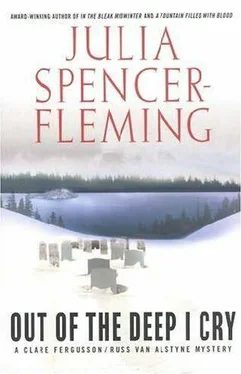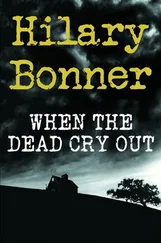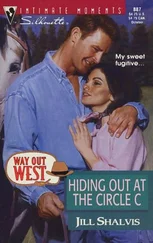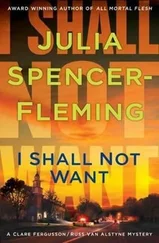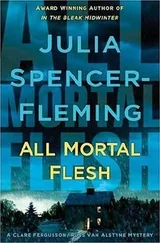Harry took Nick by the bit strap, scratched his neck, and stroked the outside of his nostrils with a light finger. From between black leather blinders, Nick looked down on him with clever brown eyes that seemed to say, This is all nice and good; but I’m supposed to be to work.
Harry led Nick out of the barn, blinking again as they emerged into the light. “Nick is the far horse,” De Grave called over his shoulder, and Harry led his charge to the right side of the rig. The gelding was so well behaved that the slightest pressure of Harry’s hand on his bit rein caused him to back neatly into his place beside the spreader’s wagon tongue. Harry and De Grave lifted the crossbar, and Harry held it steady while the farmer clipped Ned’s straps to the bar’s left ring and adjusted their tension. Then Harry did the same for Nick while De Grave returned to the tack room to retrieve the heel chains, which would attach the horses’ tack to the spreader itself.
De Grave came about the front of the team and handed Harry a three-foot chain, thick and heavy enough to break a skull open with one blow. “So how ’bout it?” Harry asked as he smoothed a hand over Nick’s broad flank. “Is Jonathon the type of man to have poured himself into a bottle? Does he have a girl somewhere who might have taken him in?”
He bent down to clip on the chain, and through the stolid stacks of the horses’ hind legs, he could catch glimpses of De Grave: muck boots and faded pants and hands that looked older than his thirty-some years, meticulously attaching chain to ring, checking the latch, checking the straps.
“Jonathon liked his whiskey as much as the next man in his younger days,” he said, his words slow and thoughtful. “He never was a temperance man, that I heard. But I haven’t seen him near liquor for… well…” He stood, resting one hand on Ned’s muscular croup. “Well, not since his children passed.”
Harry stood up, the heel chain still dangling from his hands. “What?” He could just see De Grave’s head over the horses’ rumps. “What do you mean, after his children passed? I thought he and his wife had the one daughter.”
De Grave nodded. “She was born after. They had four youngsters before. All of ’em died of the black diphtheria in ’24.”
“Good God.”
“Sometimes His will is hard. Hard to bear.” De Grave’s hand traced the leather lines of the straps crisscrossing Ned’s hip and rump. “Jonathon was different after that.”
“Different how?”
De Grave tilted his head up and squinted at the pale blue sky of early spring. “He had always been real certain about where he was going, what he wanted. He was going to make a big success of his farm, buy more land, do better than his father. After the children passed, he just sort of… spun free.”
“You mean he started acting up? Getting wild?”
“No, no, just the opposite. He didn’t have any more spark for fun in him, I think. He was more like…” Harry waited while the farmer chose his words with care. “Like a working barge that’s been set adrift on the river. You see it traveling downstream, it may look like it’s doing what it’s always done, but there’s no purpose there. No hand on the tiller.”
“Sooner or later, an unmanned boat will wreck.”
De Grave looked at Harry. “I know.”
“But not on a bottle.”
De Grave shook his head. “I don’t think on other women, either, although I can’t say for sure, one way or tother. It’s hard to imagine a man with a pretty, sweet wife like Janie looking elsewhere.”
Harry didn’t find it hard to imagine at all. He could picture it, long nights lying next to the woman, and every time you looked at her seeing your lost children in her eyes, her mouth, the color of her hair. Never touching each other without the chains of grief weighing your limbs down, making your flesh cold. He glanced at the heel chain, heavy in his hands. Easy to imagine wanting to hide yourself in someone else’s hot, blank, forgettable body.
He squatted down and attached the chain to Nick’s trace strap, tugging on it to make sure the latch was secure. He fastened the other end to the big steel ring bolted to the corner of the spreader. When everything was neat, he stood again, looked across the horses’ backs at De Grave. “What’s your guess, then?” he said. “You know the man. What would you think he’d done, disappearing from his home and not coming back?”
De Grave weighed the question with the same deliberate concentration he gave to everything. “My guess would be,” he said after a minute, “that he’d finally drifted downstream out of sight.”
When Mrs. Ketchem had described her husband investing in his brother’s gas station, Harry had envisioned one of those ramshackle affairs that were popping up in the wake of the new road construction up north, converted livery stables or smiths with a pump out front and bales of hay still stacked in the rear. He was surprised, then, when he spotted a brilliantly enameled brand-spanking-new sign emblazoned KETCHEM’S GAS AND MOTOR SERVICE. The low, wide building on the intersection of Route 9 and Tenant Mountain Road was whitewashed within an inch of its life, stuccoed into rounded edges and smooth curved arches through which three service bays beckoned to distressed motorists. There were no fewer than three pumps outside, protected from the elements by a bright red roof supported by more stuccoed pillars. It looked as if it had been lifted up bodily from Hollywood, California, and transplanted to Lake George.
Harry pulled alongside the far edge of the building, out of the way of the pumps. As he got out of his Ford, a tall, gangly youngster in coveralls popped out of the first service bay. “Help you, sir?” he said, his voice cracking halfway through the greeting. He coughed and blushed.
“I’m not here for service, son, but thank you. I’m looking for David Ketchem. Might he be around?”
The kid tucked his chin in an attempt to keep his Adam’s apple in place. “My dad’s in the office,” he said, pointing to a red door sandwiched between the service bays and a gleaming expanse of plate-glass window.
The door didn’t tinkle when Harry opened it. Instead, it set off a musical bing! that sounded like an hour tone on the radio. He began to suspect that, had life turned out a little differently, Jonathon Ketchem’s brother would have gone into show business instead of being a pump jockey.
“Can I help you?” The man behind the counter was about Harry’s age, mid-thirties, with thinning blond hair and a face that fell easily into smiling. Harry didn’t need the DAVE badge sewn over his right breast pocket to identify him as the skinny kid’s father.
“David Ketchem?” Harry smiled himself, a salve against the sting of his next words. “I’m Chief Harry McNeil, Millers Kill police.”
Ketchem’s smile faltered, and he darted a glance toward the door separating the office from the service bays. Then he reached his hand over the counter. “How d’ye do. I hope there isn’t any trouble.” His voice, which had been as smooth and accentless as a soap salesman’s before, took on a strong up-country Cossayuharie accent, so that “isn’t” came out “in’t.”
“I’m here because of your brother, Mr. Ketchem. Seems Jonathon Ketchem had a fight with his wife this past Saturday night. He stormed off in his car and hasn’t been home since. Mrs. Ketchem is mighty upset about it, and I told her I’d make some inquiries. I’m hoping you can help me locate him.”
“Yeah. Janie called me yesterday. Said he’d taken himself away and she didn’t know where he was.” Ketchem’s body relaxed, and the storm cloud that had been brewing in his eyes dissipated into amused surprise. “I can see why Janie’d go on about it to you. He’s never done that before, that I know of.”
Читать дальше
